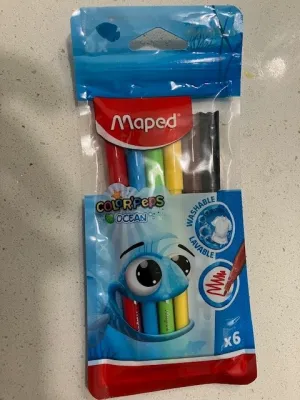CBP and CPSC Seize School Supplies with Potentially Hazardous Substances in San Juan
SAN JUAN, Puerto Rico– U.S. Customs and Border Protection, along with the Consumer Product Safety Commission, seized a shipment of school supplies in San Juan, P.R., recently that violated federal law regulating misbranded hazardous substances or banned hazardous substances.
CBP officers inspected a shipment manifested as “School Supplies,” valued at more than $54,000. Officers observed that the products did not display the required Consumer Product Safety Act Tracking labels. Officers contacted a CPSC Inspector who corroborated the violation.
“The new school year is about to start. Distributors, retailers, and consumers should be aware of the quality and safety standards of the products that they import into the United States and its territories,” stated Efrain Rivas, Assistant Director of Field Operations for Trade at the San Juan Field Office. “In this case CBP, working very closely with our partners at CPSC, were able to protect consumers from these imported school supplies that could have potentially caused serious health and safety issues to children.”
The Federal Hazardous Substances Act (15 USC 1263) requires precautionary labeling on the immediate container of hazardous household products to help consumers safely store and use those products. This labeling includes directions to consumers on immediate first aid measures should an accidental exposure occur. The Act also allows the Consumer Product Safety Commission (CPSC) to ban certain products that are so dangerous, or that the labeling is not adequate to protect consumers.
Import Safety is a CBP Priority Trade Issue and is designed to ensure that unsafe products do not enter the commerce of the United States. CBP remains committed to working collaboratively and collectively with partner government agencies, other foreign governments, and the trade industry to better define and assess risk. We do this through increased automation, the sharing of information, and an emphasis on partnerships and best practices to help protect the U.S. consumer.


